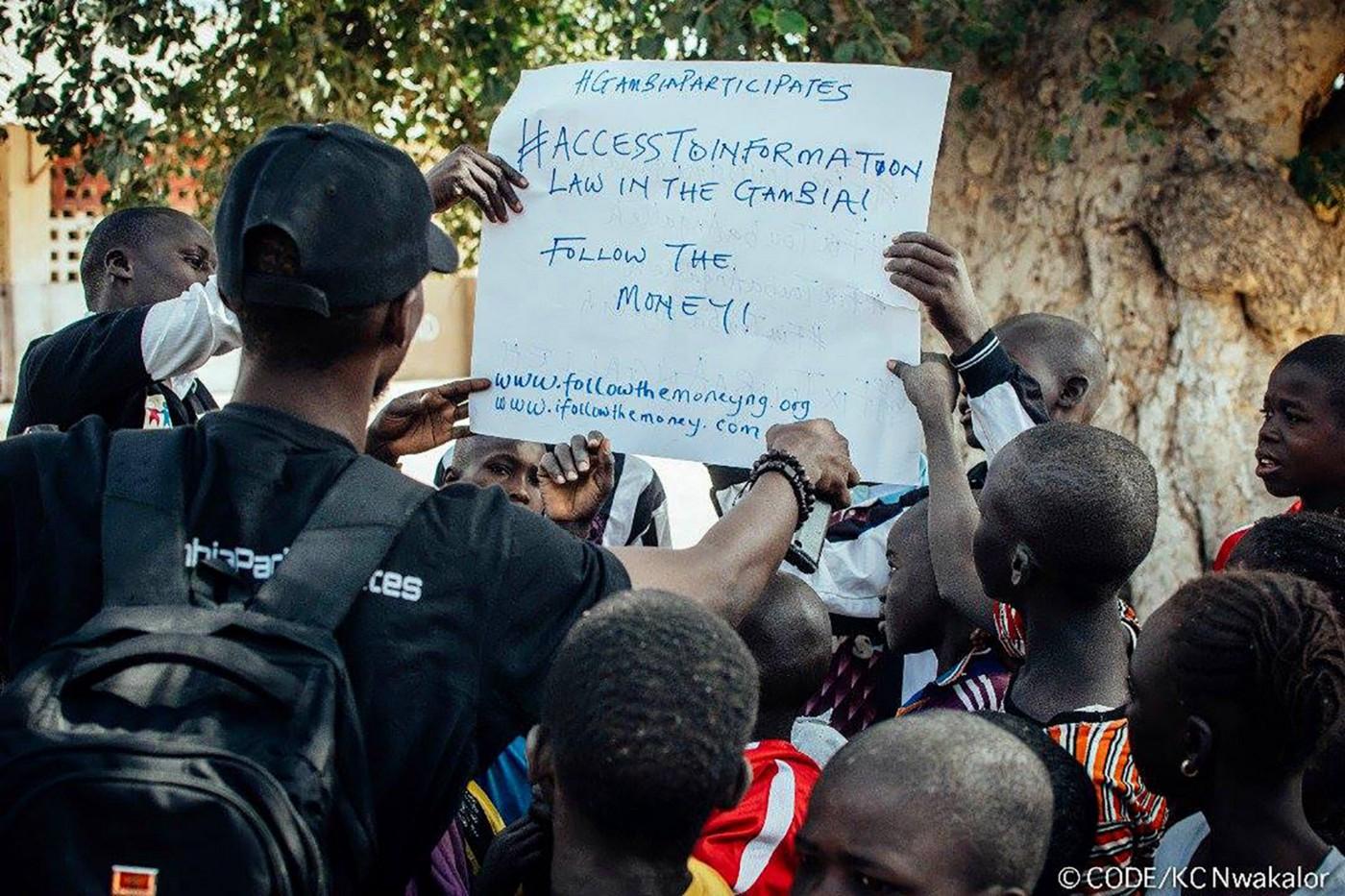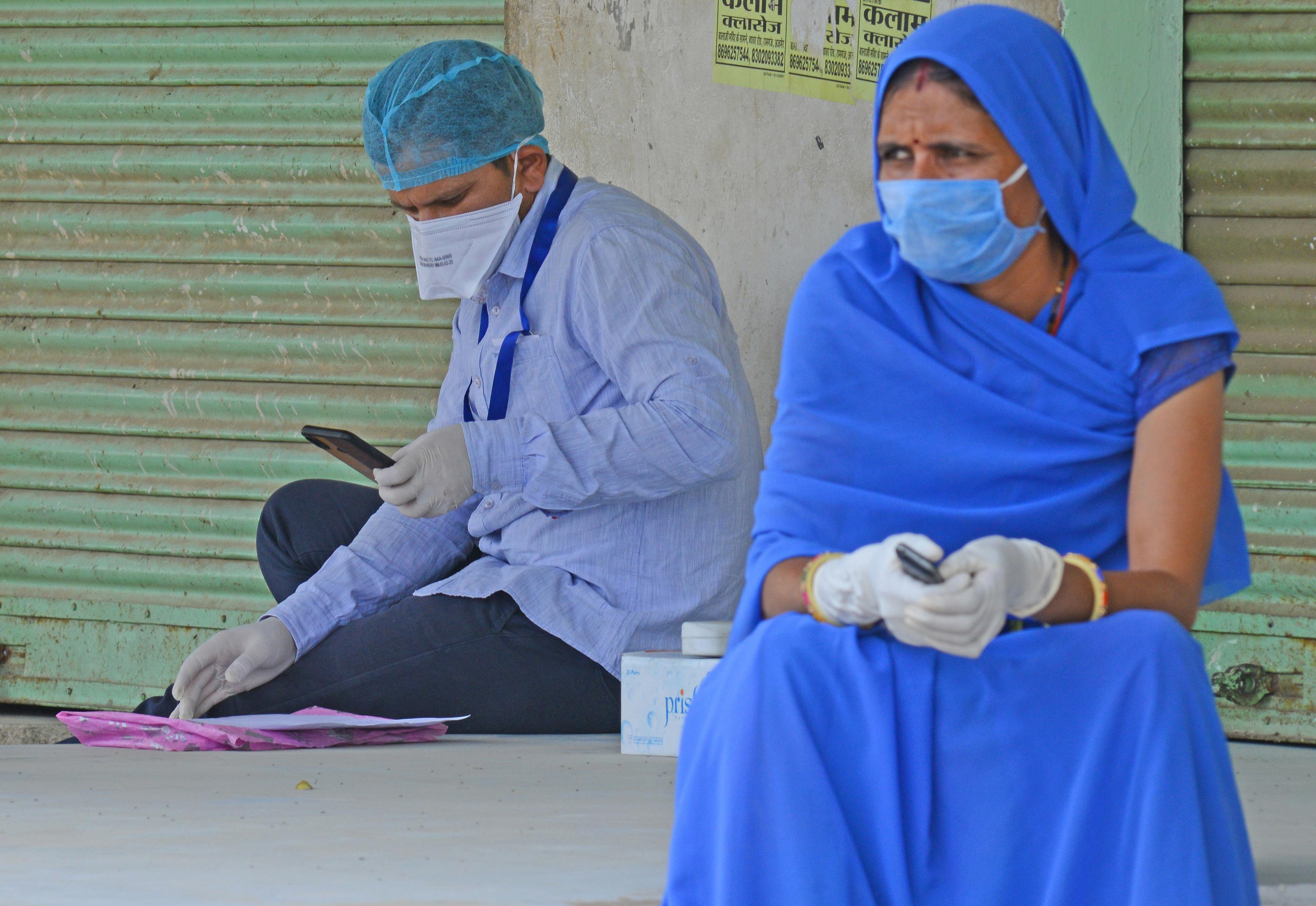Blog
African civil society is busy ensuring accountable Covid-19 relief

In a webinar in June 2020, U4 focused on African civil society organisations (CSOs) and the conditions they face for monitoring accountability under Covid-19 regulations. Many countries have implemented lockdowns and movement restrictions, and these have hindered ordinary working conditions for civil society watchdogs. We suggested that citizens would instead turn online to collaborate and share information. In this way, civil society would be able to play a key role in monitoring the spending of hastily distributed funds.
At the time of the webinar, the number of infections was peaking in Nigeria. Meanwhile other countries, such as The Gambia, had hardly seen any cases. Both countries had plans for the distribution of protective gear and medical equipment; for hiring frontline workers for contact tracing and testing; as well as plans for food and financial support for those in need. National and international donations were flowing into economies, with the corresponding high risk for significant losses to corruption. In several countries, civil society groups had joined forces to coordinate and educate themselves and their communities. They did this using online tools to coordinate local support and spread advice on how to be protected from the disease.
Tracking the ‘coronavirus millions’
The Gambia has moved in recent years towards more openness and democracy. Yet, according to the Open Budget Survey 2019, it still ranks low for budget transparency. Corruption is widespread, with the country ranked 96 out of 198 on Transparency International’s Corruption Perceptions Index (CPI).
When the Covid-19 pandemic struck, international and local emergency funds were released. The CSO Gambia Participates, in collaboration with Research and Strategic Studies (CepRass), set out to track how the ‘coronavirus millions’ were being spent. For example, the government allocated 512 million dalasi (about US$10 million) to an emergency fund in March 2020. The fund was assembled from various ministries, agencies, and departments. Gambia Participates questioned how 40% of the funds had been spent on new vehicles, 60% on hotel costs, allegedly for quarantine purposes, and only 12% on sanitary items. Its field research found that hospitals designated to be Covid-19 treatment centres were ill equipped. They lacked personal protective equipment (PPE) or even overhead (infrared) thermometers. The CSOs also found ‘ghost names’ on lists of frontline workers who would be entitled to a special risk allowance.
The investigation concluded that Gambian health workers needed training, procedures to work from, and, importantly, an infrastructure to work within. Further, it urged the government to reveal details on how funds were being spent. Gambia Participates is actively working to expose government spending and to spread understanding of state budgets and taxes. By creating explanatory videos on social media in multiple languages, it hopes to educate new audiences in the essentials of a government budget, thereby increase awareness of government spending.
Inflated prices and unverifiable companies
The Nigerian chapter of the International Centre for Investigative Reporting (ICIR) found that overhead thermometers had become a lucrative business at the peak of the outbreak. From a normal price for bulk purchases of US$50 each, the thermometers were now traded at four times the price to the government. ICIR also found companies not formally registered on the national business registry receiving government contracts in emergency procurement processes. The reason for this was implied to be the urgency of the pandemic. Their investigation report, which analysed data from the Nigeria Open Contracting Portal (NOCOPO), revealed contracts for more than US$1.4 million to unverifiable companies. The sums involved were very large, such as the International Monetary Fund’s (IMF) approval of US$3.4 billion in emergency support to Nigeria to combat the Covid-19 pandemic. There is still a long way to go before each million is accounted for.
Citizens ‘follow the money’
Connected Development is the Nigerian non-governmental organisation (NGO) behind the online community iFollowTheMoney. The concept is to engage ordinary citizens to monitor government services. They then provide evidence of fraud or corruption when projects are not delivered as described.
During the pandemic, iFollowTheMoney’s focus has been to follow up on promises to finance or provide medical services and equipment to combat the spread of Covid-19. It also monitors promises to support victims of lockdowns and job losses. A networking platform keeps the larger community together. At the same time, mobile messaging groups enable information exchange and support for local chapters in cities and states around Nigeria. When the federal government provides grants for a local intervention, network members can follow up and document how the grants are spent or if they arrive at all. In some cases, the network uses the Freedom of Information (FoI) Act to demand details on how funds are supposed to be spent.
Rather than being distributed, food supplies provided by the Nigerian federal government to support families in urgent need have been piling up in warehouses around Nigeria. Local governors have met the accusations of hoarding with the explanation that the supplies are being stored as a reserve for a possible second wave of the pandemic. During the #EndSARS protests against police brutality in October 2020, news went viral on social media about the stockpiles of emergency relief. Several warehouses packed with undistributed aid were looted by angry crowds. Nigeria’s Independent Corrupt Practices Commission (ICPC) is now investigating the looting and the allegations of hoarding.
Collaborative networks to force change
In South Africa, more than 400 CSOs have joined forces to support the response to Covid-19. The C19 Peoples Coalition uses social media and messaging apps to update and inform its members. The coalition provides guidelines on how local community responses to the coronavirus can be organised. The ‘Community Action Network (CAN) Starter Pack’ includes advice on important aspects of building and maintaining community groups.
The Movement for Change and Social Justice in South Africa has its roots in fighting the spread of HIV. Before the lockdown, it used to mobilise at funeral gatherings. These could be easily attended by more than 1000 people. Now the movement has moved to social media, which has changed the way it works for the better. According to an article in The Conversation, organisations previously worked in silos but now have ‘bundled their expertise and resources to form collaborative networks’.
Corruption Watch is also part of the C19 network and monitors procurement and aid distribution closely. After ongoing pressure, the South African government has published the list of all contracts awarded under the emergency procurement regulations.
Online support for watchdog role
Civil society organisations are essential to ensure fair and trustworthy distribution of support to the most vulnerable in countries with low trust in government institutions. They provide neighbourhood assistance, distribute food packages, or share information on precautionary measures based on their local competence and networks.
CSOs are also crucial as watchdogs to monitor how donations and government spending are distributed and for what purpose. Mismanagement and stolen assets have been identified in many countries. Support packages have also been used in countries as a political tool. In such cases, emergency supplies maybe marked with political party logos and distributed in the same manner as campaign material.
In both these roles, CSOs profit from online coordination and knowledge sharing. This is particularly the case when governments are restricting physical meetings as a measure to control the spread of Covid-19. Because of civil society’s emerging online networks, some countries see an increased interest in collaboration between organisations that previously worked in their own silos.
See also the U4 Anti-Corruption Resource Centre’s topic page on how to strengthen anti-corruption efforts during the pandemic.
Disclaimer
All views in this text are the author(s)’, and may differ from the U4 partner agencies’ policies.
This work is licenced under a Creative Commons Attribution-NonCommercial-NoDerivatives 4.0 International licence (CC BY-NC-ND 4.0)
